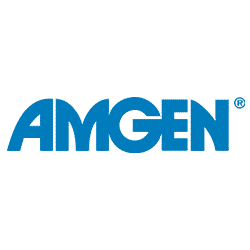
Amgen Pharmaceuticals
www.geekwire.com
51 University St
Seattle, WA 98101 – 900,000 square feet

Client Overview
Amgen Pharmaceuticals is a global company leading the way in several key areas of medicine: oncology, cardiovascular disease, nephrology, inflammatory disorders, bone health, and neuroscience.
AMGEN hired IPG to lead a nine-month detailed real estate review in partnership with Lend Lease for AMGEN in three major life science markets: South San Francisco, Seattle, WA, and Cambridge, MA.
Each market had a specific set of unique challenges and independent business cases to consider.
IPG Services Provided:
- Real Estate Review
- Sublease Analysis
- Development Analysis
- Investment Sale Programs
Our experts on this project

Assignment & Process
- As part of Amgen’s “Full Potential” initiative, Amgen instructed the IPG team to step back and look closely at Amgen’s real estate portfolio from a broad range of perspectives. We were to identify strengths, weaknesses, opportunities, risks, and put into action critical programs to drive operational efficiency and value.
- The Seattle assignment’s ultimate project goals were to divest and abandon. We were to determine the most expedient, yet sound strategies to abandon the 900,000- square-foot asset in the most profitable manner. All goals for the Seattle project were intended to support Amgen’s innovation with greater speed to market.
- Divesting this property would allow Amgen to run lean on real estate, and in turn, invest more into core business pursuits of developing life-saving medicines and interventions.
In Seattle, it was clear that Amgen needed to figure out the most efficient way to abandon their operations and research campus. The campus was a Class A building that they inherited through their acquisition of Immunex, a deal that was worth $16,000,000,000 in the early 2000s.
Despite being a world-class campus and one of the finest laboratory facilities in Seattle, Amgen could not justify carrying the expense, especially given their exposure in South San Francisco. AMGEN wanted IPG and Lend Lease to explore all avenues and make an analysis comparing the advantages of a rapid sale of the campus, a long-hold disposition strategy, or master development JV partnerships, given all the excess land the site offered for development opportunities.
The positive factors AMGEN had to work with in Seattle were:
- Class A Design & Construction
- Excellent Waterfront Location
- World-Class Corporate Image
- All Facility Layouts and Building Systems
- Master Development Opportunities
- JV Structuring for Expansion Land Development
The negative factors working against Amgen, in terms of being able to lower their economic exposure, included:
- Investment Basis on Campus
- Seattle Life Sciences Market Demand Could Not Easily Absorb 900,000 Sf of Lab Space
- Challenging Disposition Options
- Life Science User Base Was Not Strong
- Disposition of The Campus Would Triple Biotech Vacancy in Seattle
A quick exit was the most desirable outcome for Amgen. Unfortunately, that option came with the worst possible economic returns.
The IPG team concluded that a rapid disposition of the campus would likely yield the lowest proceeds. At the same time, however, it would minimize carrying costs with the least complexity.
A longer-term sale and/or redevelopment strategy would deliver higher sales proceeds.
We suggested that Amgen should evaluate its options, assuming there are two property components – the building, and the excess land not required to support the building.
The waterfront location and fee-simple ownership make the property attractive to developers for joint-venture investment.
In the end, our best evaluation of AMGEN’s Seattle campus concluded that as a single property, the building is likely too large for single-tenant use and the excess land, as zoned and entitled, did not maximize its use.
A strategy that evaluates the best use of the building and the land should return the most capital to Amgen.
As a result of the team’s work on Amgen’s real estate review, the company decided to shut down Seattle and consolidate its west coast operations between South San Francisco and their Corporate Headquarters in Thousand Oaks, California.

IPG Services Delivered




























